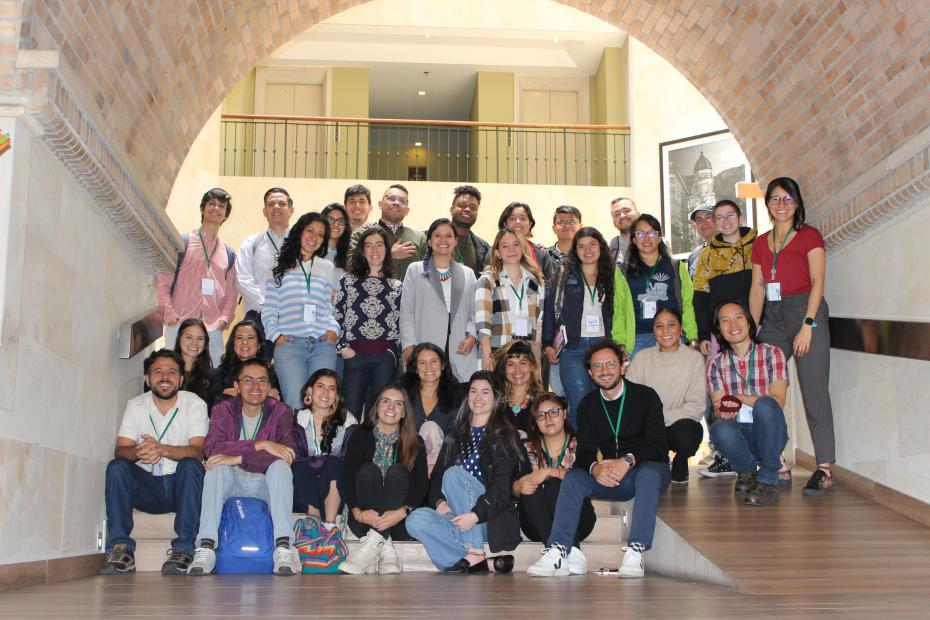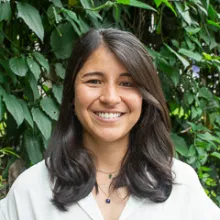
An alliance for clean air in Latin America is born
Foto: Noah Silliman en UnsplashIn the face of environmental injustices, like poor air quality and its harm to human health, our societies respond together and organize in similar ways, without even knowing it.
This was one of the takeaways from the Latin American Meeting for Clean Air, which in early August brought together researchers, government officials, youth leaders, civil society representatives and international cooperation agencies from Brazil, Chile, Colombia, Ecuador, Mexico and Peru.
They met with three main objectives: to strengthen the link between air quality and climate justice, to exchange lessons learned, and to build networks for international collaboration.
"Poor air quality and related health problems are a common problem in Latin America, knowing no borders or territorial boundaries," explained Anaid Velasco, Research Manager at the Mexican Center for Environmental Law (CEMDA).
According to the World Health Organization, air pollution affects close to 90 percent of people living in urban areas around the world.
Despite the magnitude of the problem, public actions and policies to improve the air we breathe are not fully standardized.
In addition, air quality indices across the region are not uniform and do not allow people to be adequately informed of the dangers of air pollution in different environments.
This represents a problem and, at the same time, an opportunity to collaboratively create and refine tools.

Aware of the opportunity, meeting participants founded the Latin American Coalition for Clean Air (ALAIRE) to respond to three primary goals:
- To position a narrative that makes air quality a strategic priority in the public health and climate crisis management agendas in Latin America.
- To influence authorities and promote public policies that contribute to an improved management of the sources that contribute to poor air quality in the region.
- To advocate for conditions for civil society and the business sector to become involved in compliance with regulations, policies and the improvement of air quality in the continent.
"The creation of this coalition is a fundamental step towards improving the air we breathe, across the region," Velasco said. "CEMDA is very proud to be part of it as clean air is a fundamental condition to guaranteeing the human right to a healthy environment."
The Latin American Meeting for Clean Air was organized by AIDA, El Derecho a No Obedecer (a project of Corporación Otraparte), Trébola Organización Ecológica, Coalición Respirar, El Poder del Consumidor and the Heinrich Böll Foundation. It had open activities attended by 200 people, as well as closed meetings to reach agreements among the key organizations.
The meeting served to reaffirm that the fight for clean air is also the fight to reduce greenhouse gases and confront the climate crisis, as well as a necessity to guarantee the right to health of people in the region.
The event also confirmed the importance of citizen science, in which individuals are working to demonstrate the true levels of exposure to poor air quality in different cities in the region, in turn highlighting the urgency to act.
The newly formed coalition will empower the efforts of citizens, academics, organizations and other actors, while contributing to the achievement of regional agreements for the development and implementation of public policies that improve air quality and protect human health.
Daniela García Aguirre

Daniela García Aguirre is Colombian and Coordinator of the Air Quality Area in AIDA's Human Rights and Environment Program, working from Bogotá. She is an environmental engineer (B.Sc.) and lawyer (LL.B.) from Universidad de los Andes, Colombia, and holds a Master's degree in Environmental Law and Public Policy (LL.M.) from Stanford University, California, USA. She is a former Deputy Director of Air, Hearing and Visual Quality at the District Secretariat of Environment of Bogotá. Daniela has significant experience in air quality monitoring and in the development of environmental public policies from an environmental justice perspective. She has also developed an important academic work advising communities in the construction of strategic litigation to guarantee the rights to health and a healthy environment.
